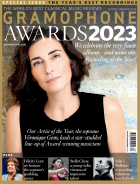Texte paru dans: / Appeared in: |
|
|
Outil de traduction |
|
|
What is this voice? I first received this album on the road, so I put it on before looking at its cover too closely. I knew I was listening to solo cantatas by Antonio Cesti, a 17th-century Italian composer celebrated across the Habsburg Empire, but did not know who the singer on this album was – and I don’t mean just by name. Was this a young teenage boy schooled in Leipzig? Was it the vibratoless purity of a highly trained woman in Basel? Or perhaps this was a new breed of countertenor from the East Coast. I was stumped.
Once I began to waive my instinct to classify this voice, it transformed from the puzzling to the beguiling. In times where identity is increasingly fluid – or perhaps the castrati of the 18th century teach us that it was always so – this album is a fascinating reminder that the human voice does not sit in neat, stable categories but rather subtly shifts across the decades. Anyway, the tantalising voice belongs to Alice Borciani, an Italian singer from Reggio Emilia. To get a feel for the Cesti sound world, as well as her beautiful, liquid control, skip straight to the cantata Ricordati mio core. Underpinned by superb harpsichord-playing by Elam Rotem, there’s an understated quality to Borciani’s phrasing. Yet there’s plenty of colour, too: Borciani captures the theme of suffering in love with potent restraint (it is shame that the booklet notes do not contain precise translations of Giovanni Filippo Apolloni’s poetry, but only snapshots of what each short text is about).
There are three instrumental episodes in Ricordati mio core, each lasting about 10 seconds. Even from these tiniest of cameos, it’s possible to detect the excellent string-playing on offer, abundant elsewhere on the album. Interspersed among the cantatas by Cesti are instrumental movements from Giovanni Buonaventura Viviani’s Op 4. Of note is violinist Eva Saladin, whose recent solo album of music by Pandolfi Mealli I gave an unfavourable review (Challenge Classics, 9/23). Clearly I was too quick to pass judgement: Saladin’s playing here is special indeed. She conjures a seductive sound world full of lively, subtle rhetoric – a beautiful counterpoint to Borciani. Employing ornaments that were designed to mimic the human voice, Saladin provides another strand of eloquence in this wholly enjoyable album. |
|




